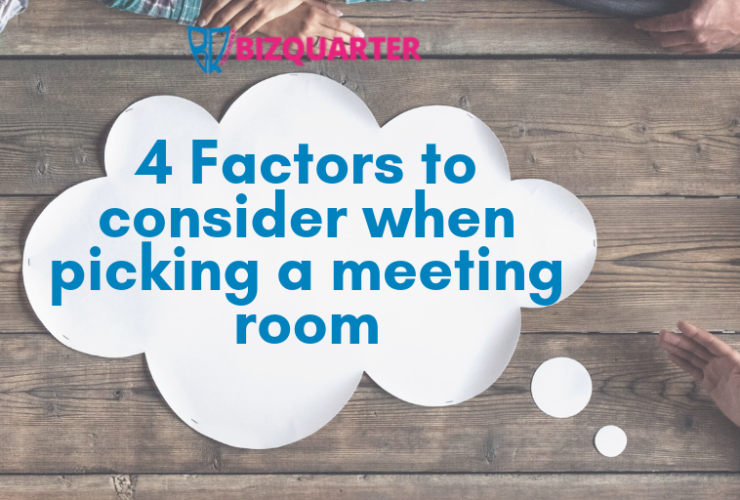With more than half of all UK businesses registered as home-based, it seems that working from home has become the latest trend to hit the business world. Compared to the more traditional model of a 9-5 job, working from home seems to offer more flexibility and options. But do they outweigh the infamous distractions of working from the comfort of your own home? In this blog, we look at some of the defining characteristics of both working from home and working in a more traditional office.
Less Involvement
One of main differences is that you don’t experience office environments when you work from home. While this can be viewed as an advantage, as you can get your head down and get stuck into work, it also isolates you from office culture and social interactions. If you’re not too keen on chit-chat, this might suit you just fine, but it does mean you’ll no longer have coffee-machine chats with co-workers and that can get a little repetitive.
This is especially relevant now that companies are putting more time and energy into creating comfortable and engaging work environments. This emphasis on office culture means that the perks of working in an office can sometimes include things like gym memberships, social events, nights out, sponsored lunches, and learning seminars. In fact, statistics show that company culture has never been more important to employees than now and it seems to actually have a positive impact on productivity and revenue. So yes, while we can all agree that a stuffy corporate office is no fun, it’s clear that this isn’t always the norm anymore, as there are very dynamic offices out there with great benefits.
Distractions
Most would agree that it’s far easier to get distracted at home. The temptation of a longer lunch, an extra coffee break, or finishing the day off earlier are elements that can slowly creep into a daily routine if you’re not careful.
However, it can also be argued that the traditional office model of a 9-5 workweek is somewhat outdated and demotivates people. Iceland, for example, pioneered a shorter workweek several years ago that yielded some extraordinary results, as employees reported great work satisfaction, higher levels of well-being, and fewer sick days, all while keeping the running business costs the same. It’s a fine balance, but if you can stay focused, there’s no evidence to suggest that people are more productive when working in offices.
Professional Image
While working from home may seem comfortable and easy, it certainly poses a challenge for those looking to maintain a professional reputation. Where do you have meetings, for example? Nothing says unprofessional like inviting someone into your living room for a business meeting. It’s a challenge that many home-based businesses deal with on a weekly basis, as making a first impression on clients is always vital.
One workaround for this problem is to book flexible meeting room spaces. Bizquarter, for example, is a meeting room provider who offer a flexible booking system that allows you to select hourly slots for your meetings, rather than commit to excessive monthly overheads. This means you’re never wasting your money, time, or office space.
Flexitime & Commuting
This kind of research may indicate that working fewer hours at home can actually increase productivity. With the advent of many useful internet-based communication apps, working remotely has never been so convenient, allowing you to stay in touch with the rest of the business and your clients. You can even reroute your business phone to your cell-phone if you wanted to! As a result, flexitime has become an option that many companies offer their employees.
This also has far-reaching implications on the amount of commuting people go through to get to work. Our digital world has never been so efficient and fast-paced, which is in stark contrast to slow-moving traffic and hour-long commutes. Sadly enough, this has recently seen the average daily commute in the UK rise to more than 2 hours, leaving many people wondering whether that time wouldn’t be better spent focusing on work at home.
Cost
If you run your own business or are just starting up, the prospect of costly monthly overheads can seem daunting. Offices can be expensive, especially if you want to compete with flashy interiors and modern design companies. Having a kitchen, bathroom, meeting space, lounge area, and amenity space can add up to quite a bit of floorspace. That’s why a lot of companies (especially start-ups) opt for coworking spaces and often use these in conjunction with hourly meeting room providers. That way you can keep costs down while maintaining that crucial professional image.
A third way
While there are advantages to working from home or in offices, there is of course always a middle ground that should be explored. We think this is a great way to experience the best of both worlds, as you can enjoy the perks of a vibrant and engaging office environment and a comfortable and customizable home-office.
As offices become more versatile, the need for flexible space has also grown. If you’re a start-up, self-employed or just looking for great meeting spaces, then check out Bizquarter’s flexible meeting rooms for professional meeting room solutions in Glasgow city centre.
Want to read more?
Read our top 7 tips for home-based businesses for all the tricks and workarounds for maxing out your productivity.


